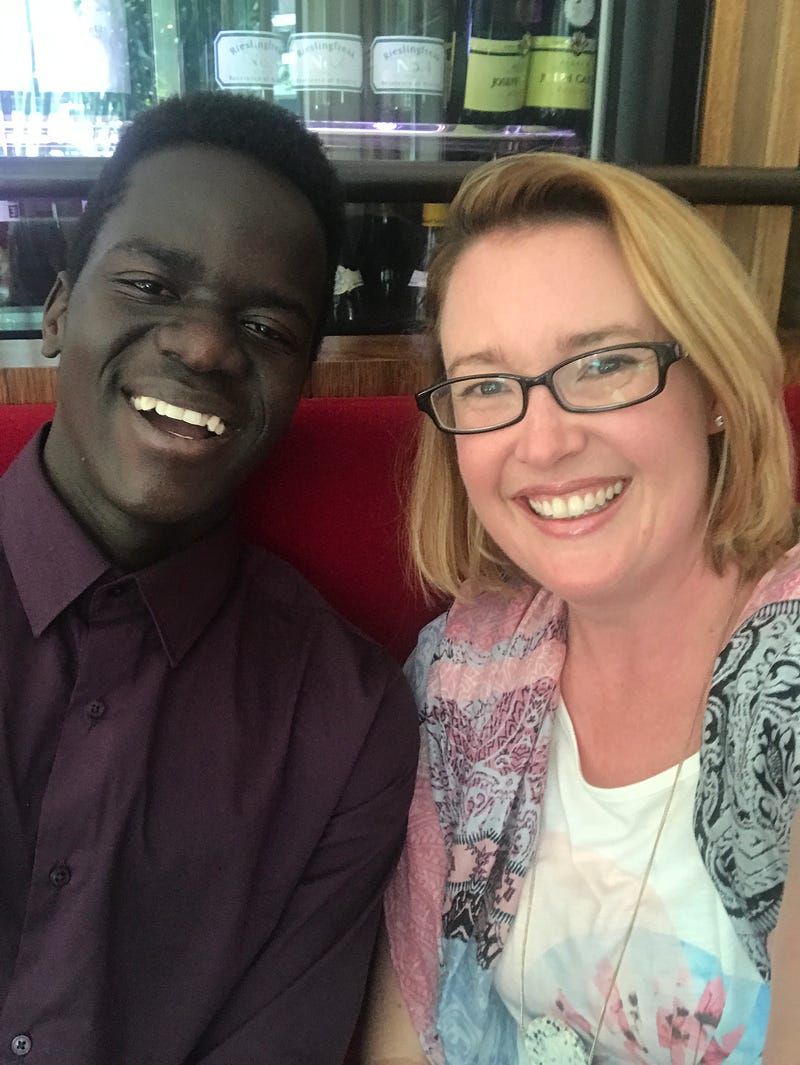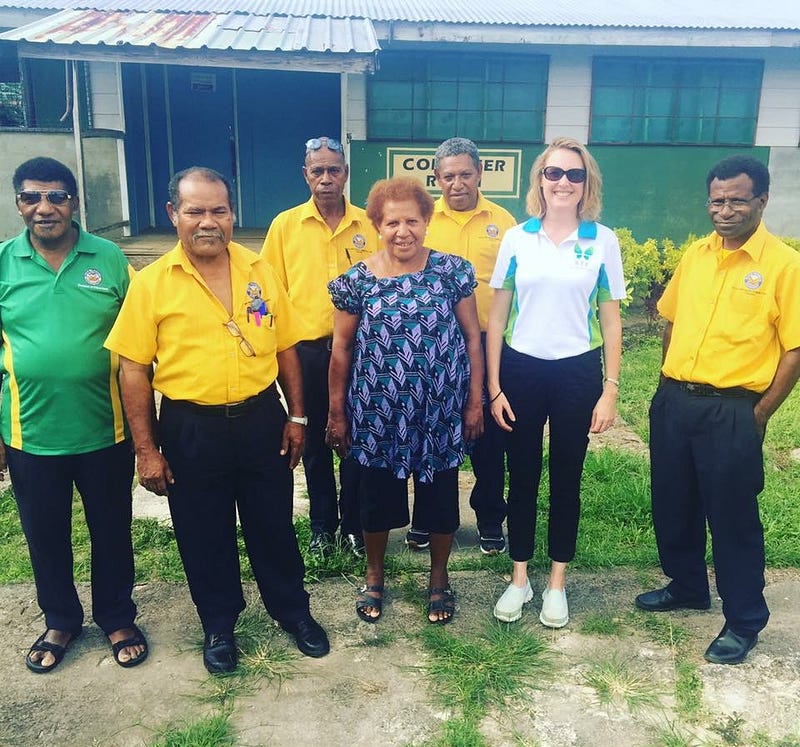Genevieve Nelson is 35 years of age and the mum of two young girls — Emilie (3 years) and Leyla (20 months). She is the CEO of KTF, a not-for-profit organisation that works to improve the lives and futures of the people of Papua New Guinea (PNG). Genevieve is passionate about social justice and human rights. She believes everyone has the right to access a free and high quality education, affordable primary healthcare, clean energy, and to live without fear of prejudice or violence. Genevieve believes that it was pot luck that she was born in a country as fortunate and prosperous as Australia.
1. Humble Beginnings
Q: How did you get started and what or who inspired and empowered you to?
I grew up in the southern suburbs of Sydney and was fortunate enough to get a scholarship to go to the University of Western Sydney where I studied Psychology. Psychology wasn’t my first choice. I wanted to study medicine because I wanted to work in the developing world. I always dreamt of being a doctor with Médecins Sans Frontières! After completing my psychology degree, I went through the rigorous application process of applying for post-grad medicine and was accepted into ANU. But by that stage the opportunity to undertake a PhD in Papua New Guinea presented itself and I had to question what my motivations were and where I wanted to go. PNG was my answer.
In those early days I was inspired by the people I crossed paths with — especially in Papua New Guinea. I first walked the Kokoda Track in 2000 when I was fresh out of high school. And it changed my life. It was my first exposure to poverty and witnessing firsthand how difficult life was for many of our nearest neighbours; and yet the generosity and warmth and openness that I experienced by the communities who welcomed me into their homes on that first crossing — it was extraordinary.
I was then one of the co-founders of KTF in 2003 and worked with a passionate group of people who wanted to “give back” to our nearest neighbor. I was responsible for developing the “what”. We knew why we established; but what would we do and how would we do it to improve the lives and futures of the people of PNG.
Q: What unique and creative strategies if any did you use when you were first getting started?
Probably many of the same strategies I continue to use today. My journey has been characterised by rolling my sleeves up, giving everything and anything a go, working hard, and taking risks. I’ve also made sure that I identify and utilise people partnerships ever since my early days at university, completing my doctorate, early career, and establishing KTF and its programs. I believe the most effective change comes about when you surround yourself with empowering people — people who encourage you and walk alongside you, spurring you on to go the extra mile. People who you can learn from and who inspire you.

2. Mindset
Q: What mindset distinguished you from others who were doing the same thing? How did you develop it?
I have always had an extremely strong and determined mindset and I don’t mind facing a challenge head on! PNG can be a challenging environment to work in; and the delivery of impactful aid and development activities in some of the remote regions that we operate in is extremely challenging. This determination, and the determination and passion I see in my extraordinary team, is what drives us on and on through some of the challenges we face. It makes us good problem solvers, it forces us to evolve and to look at complex challenges in innovative and adaptive ways, and it makes us determined to find solutions… even if they don’t exist yet.
12 months ago, we embarked on an enormous teacher training project that has seen us expand our presence to 8 Provinces across PNG and broker partnerships with Government bodies, communities and private sector that we had never previously worked with. Over these past 12 months, we have trained 1,200 teachers — an outcome we never thought possible — and are on our way to train another 1,500 by the end of the year. Sheer determination, persistence, and problem solving by my team, enabled us to achieve these outcomes.
3. What is your definition of success?
This has to be one of my favourite quotes of all time by Ralph Waldo Emerson:
“Success: To laugh often and much; to win the respect of intelligent people and the affection of children; to earn the appreciation of honest critics and endure the betrayal of false friends; to appreciate beauty, to find the best in others; to leave the world a bit better, whether by a healthy child, a garden patch or a redeemed social condition; to know even one life has breathed easier because you have lived. This is to have succeeded.”
Success to me isn’t about me. It is about others and making a difference in the lives of people who are doing it tough. And the joy that stems from this is the greatest reward. Far more than money or career progression or influence or power.

4. Failure
Q: What do you think is the main reason why some people face failure when going after their vision?
Perhaps it’s from losing sight of their vision that they set in the first place. When we set ambitious agendas that are about creating social change and addressing complex problems in the world, the journey that we need to go on to achieve our vision can be long. And arduous. And heartbreaking at times. When faced with adversity, it can be easy to lose sight of the original vision. That’s why I surround myself with people who I can ‘check in with’. Who challenge me and aren’t afraid to ask me the hard questions. Push me to consider if what I’m doing and where I’m spending my energies, people and resources, is actually the most effective way to progress the vision.
5. What is the best piece of advice you have received or came across and would like to share with everyone?
It’s hard to narrow it down to just one! I am constantly being given gems of advice by people I admire and am inspired by. I was reminded just the other day by a dear friend that the world is full of helpers if we only look. That no matter how hard things might seem, or how much we despair the future, there are helpers everywhere we go, if we just look for them. Surrounding ourselves with these helpers is critical for change.
To view Genevieve’s work and get in contact with her visit KTF
If you enjoyed this story, hit the heart button to drive in more people to read about Genevieve’s amazing story. Don’t forget to follow me to read more amazing stories from amazing people.


